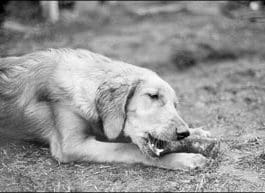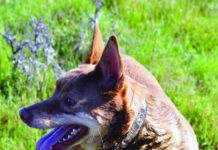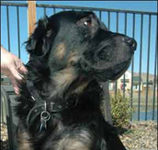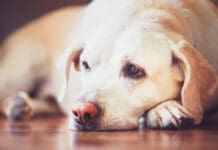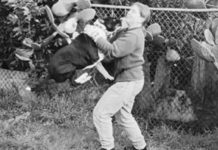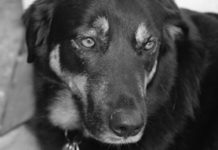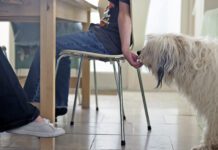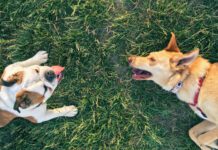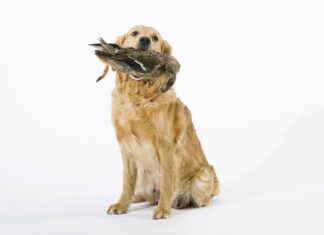How to Deal with a Dog Who Eats Poop
Most of us find a dog's habit of eating feces to be the most disgusting thing that a dog can do. The clinical name for this behavior is coprophagy (pronounced kä - prä - fey - je), from the Greek words copro, which means feces, and phagy, which means eat. The habit is not just revolting to us humans, it's also potentially harmful to the dog's health.
Behavior Modification for Itchy Dogs
Excessive self-licking and chewing can be caused by a medical issue. It can also be a behavioral problem, a classic example of an obsessive/compulsive disorder. Either way, it's annoying to the dog's human companion, and dangerous to the health of the dog. Here are tips for dealing with dogs who self-lick and chew excessively. To begin behavior modification, determine your dog's stressors and start eliminating them. Make a list of everything?you can think that is stresses your dog even just a little bit, even if the stressors don't seem directly related to the licking. Your list might include thunder, small children, dogs on television, cats, riding in cars, visits to the vet, shock collars, medical issues, and many more. Most owners can identify between 10 and 20 stressors for their dogs.
How to Tell If a Dog Is Depressed
Depression in dogs typically involves a significant behavioral change. Often starting with a gradual loss of interest in once-loved games. It can also start with a bang with aggressive or destructive behaviors.
Behavior Medication Opens Doors
After about six weeks of living with Trill, Dr. Sharp knew that the frightened, anxious dog needed something more. The training and behavior protocols were working in the sense that the dog was cooperative, but Trill still had a panicked look in her eyes much of the time. Sharp was concerned: No animal should have to live with that much fear, she thought.
Causes of Reactive Dog Behavior and How to Train A Reactive Dog
“Reactive” is a term gaining popularity in dog training circles – but what is it, exactly? In her book Clinical Behavioral Medicine for Small Animals, Applied Animal Behaviorist Karen Overall, M.A., V.M.D., Ph.D., uses the term to describe animals who respond to normal stimuli with an abnormal (higher-than-normal) level of intensity. Take a deep breath and relax. We have positive training solutions for dogs who "go off" or "lose it" in certain circumstances.
Help for the Home-Alone Dog
As soon as the kids went back to school and Carly was left home alone during the day, things in and around the Hoye’s house began to get chewed. Initially, they thought it was just puppy teething, and to save the rugs and furniture (not to mention the hardwood floors and woodwork around the doors and windows in their restored Victorian) the Hoyes started leaving Carly outside during the day. But she soon advanced to chewing the lattice off the sides of the deck and the shingles off the sides of the house.
My Dog Is Not Eating
If your dog won’t eat, you have a small window of time to evaluate the situation, The better you know your dog, the easier it is to decide if it is something serious or just a phase.
Why Dogs Sneeze When They Play
When a dog sneezes due to an irritation in her nose, the sneeze is forceful and may include nasal discharge. A social sneeze is small and delicate with no nasal discharge and very little head movement.
Solving Your Dog’s Behavior Problem Crisis
One of the most irritating and common phone calls I receive in my capacity as a professional dog trainer is when dog owners urgently ask me to help solve their dog's behavior problem immediately even though, as it often turns out, the problem has actually existed for years. Sometimes, it's even phrased as, If we can't get this fixed now
Is My Dog Depressed?
When a dog is suddenly no longer interested in their favorite activities, whether it's playing Frisbee in the park or chasing squirrels in the backyard, most animal behavior experts will tell you to look for a physical explanation, not a mental-health recommendation. Taking your four-legged friend to the vet for a physical exam should always be the first response to what seems like depression. A change in behavior can usually be attributed to underlying physical conditions like arthritis or pain.
Beauty for Ashes
Competing with our Sheltie Asta at her first agility trial was an answer to our prayers. After her diagnosis, we lived with months of uncertainty about what type of life she might have. Following her lovely debut, a friend aware of Asta's condition commented on how normal" it all looked. But our path to that first agility competition was anything but "normal" because Asta has a mental illness."
Hannah’s Change of Heart
Hannah was a normal, healthy Labrador Retriever puppy: happy, boisterous, playful, and always willing to eat. Hannah’s owner, Connecticut resident Anne Hassett, bought Hannah when the pup was seven weeks old. Hassett trained, socialized, and loved the golden pup. A field-line Labrador, Hannah hunted on the weekends and enjoyed the comfy life of a companion Lab weekdays. Hannah was well known in hunting circles for her steady, easy-going temperament, the coveted hallmark of the Labrador breed. Hassett considered breeding her, and had the dog examined and tested for genetic diseases.





